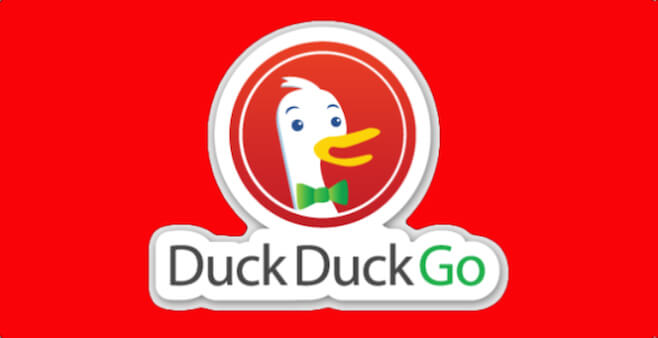Menu
Table of contents
Just going to Altavista, Lycos or Yahoo to look up something about Seinfeld.
And just asking Ilse what that one from the Backstreet Boys was called again.
Or is it better to find that through MSN?

Ah, the good old days.
But who remembers those search engines?
For some, they are a feast of recognition, but for others, at most, a frowning eyebrow.
Because they only know Google.
Not surprising either, considering that Google has been the largest, most used search engine in the Netherlands for decades.
But that hasn't always been the case.
And the question is also whether it would always remain so.
Let's see.
2009: the share of search engines in the Netherlands
Google entered the search market roughly in 1998.
And within ten, eleven years, it managed to capture a huge share of the most used search engines.
Worldwide.
More than 9 in 10 searches went through the platform.
But that also means that some 10% still ran through other channels.
How was that?
We list the five biggest search engines of early 2009.
| Search Engine | Share in 2009 |
| 92,83% | |
| Homepage | 4,12% |
| Yahoo | 0,46% |
| Ask Jeeves | 0,42% |
| Bing | 0% |
So Google dominated the market a decade ago.
That's not surprising, but that we still used Home Page back then might have been (who still does?).
Yahoo and Ask Jeeves (now simply Ask.com) were also rarely used.
Bing, one of the search engines in the Netherlands that we now know well, was not used at all in early 2009 because it simply did not exist at that time.
At the end of 2009, however, Bing held 1.16% of the market share, which, incidentally, came at the expense of the number of searches through Home, Yahoo and Ask Jeeves.
Hence the mention.
2014: the most used search engines
Five years later, the same five largest search engines.
But in a slightly different order this time:
| Search Engine | Share in 2014 |
| 93,71% | |
| Bing | 2,97% |
| Homepage | 1,30% |
| Yahoo | 0,70% |
| Ask Jeeves | 0,33% |
Google was also by far the largest search engine in the Netherlands five years ago, in early 2014.
Even gained nearly another percent over 2009.
Microsoft's Bing has not been able to snatch much from that, but it has been able to snatch much from Home page, making the latter seem to be slowly disappearing from the scene.
Yahoo and Ask Jeeves also remain remarkably stable thanks to a handful of loyal users.
2019: What is the current state of affairs?
Nothing is as changeable as the weather.
Except for the Internet and technological advances that make search engines better and better.
That means that today we see a new player in the five most used search engines in the Netherlands:
| Search Engine | Share in 2019 |
| 95,59% | |
| Bing | 2,33% |
| Yahoo | 0,80% |
| DuckDuckGo | 0,71% |
| Homepage | 0,21% |
Today, relatively more searches are conducted through Google.
Needless to say, when you consider that we are doing more and more searches at all thanks to the increasingly available mobile Internet and that Google is installed by default on virtually all Android phones.
Search engines Yahoo and Bing are also still able to keep up nicely with that violence.
Because although their market share is small, that still means millions of searches a month go through these search engines.
And we also see a new search engine making headlines: DuckDuckGo.
DuckDuckGo
DuckDuckGo is a search engine that values privacy and does not collect data from you.
Everyone, unlike with Google and Bing, gets to see the same results for a given search.
No personalization, in other words.
Sometimes this may yield less relevant results, but on the other hand, it can be useful.
DuckDuckGo also allows for truly anonymous searches because it uses an extremely encrypted Tor network.

Notable search engines in the Netherlands
Right behind Startpagina, we find two more search engines worth mentioning: MSN (0.14%) and Yandex (0.07%).
Of course, we remember MSN from the old days, and it might be nice to see that it is still used to search the Internet.
By whom I don't know, but apparently still by enough people to appear in the list.
Yandex: the Russian search engine
Yandex is a Russian search engine with an office in Schiphol Airport.
In Russia, it is a search giant with over 60% market share, making it the most widely used search engine worldwide after Google, Bing, Yahoo and Baidu (a Chinese variant).
Not only does it provide search results, but you can also access email, maps, translation services, music streaming, cloud storage and you name it.
Like Google, an Internet giant that has now also built a small user base in the Netherlands.
Search engines in Germany, Belgium and the UK
Interestingly, the share of search engines in Germany and search engines in Belgium follow a similar pattern.
Only in England does the distribution of shares in the market differ slightly.
There, Google has a smaller (but still huge) share and Bing and Yahoo have slightly more users:
| Search Engine | Belgium | Germany | United Kingdom |
| 95,81% | 95,22% | 91,97% | |
| Bing | 2,70% | 2,51% | 4,47% |
| Yahoo | 0,79% | 0,83% | 1,83% |
| DuckDuckGo | 0,33% | 0,52% | 0,50% |
| MSN | 0,18% | – | 1,05% |
| Web.de | – | 0,31% | – |
Splintering in search engines in the Netherlands
Back to the Netherlands.
With the advent of the Internet, niches are emerging everywhere.
Niches in politics, for example.
Just think of all those small parties with one position on a particular issue.
Thanks to the Internet, they too can effectively reach their target audience by targeted advertising, for example.
But these niches are also emerging in the marketplace.
For every product, no matter how specific, you can find an online store.
So that each individual's needs can be met.
The same is true of the search engine market.
There are now many search engines, each looking for the best results in its own way, thus targeting a particular audience.
DuckDuckGo and Ixquick's Dutch search engine Startpage are examples.
These perfectly suit the needs of those who value privacy very highly.
Or, for example, Wolfram Alpha, which gives mostly formulas and other scientific results.
What will the future bring?
Given the trend of the past decade, it does not appear that Google plans to surrender much of its market share.
The vast majority of people will continue to use the search giant with its colorful logo to find anything on the Web.
And with the advent of voice search and the Google Home Speaker, that share even seems likely to grow.
The only things that could possibly throw a spanner in the works are a huge privacy scandal, causing people to switch en masse to DuckDuckGo, for example, or the development of a new technology.
A new algorithm that can provide searchers with even more relevant results.
But chances are, as the market leader, Google will develop that itself or (when it becomes really critical) take steps of its own to be able to protect the privacy of its users.
In short, there seems to be no trouble for Google for now.
Data taken from gs.statcounter.com.











Written by: Daniel Kuipers
Daniel is the founder of Online Marketing Agency. He constantly scours the Internet for the latest gadgets and tactics and blogs about them in understandable language. Well, sometimes.